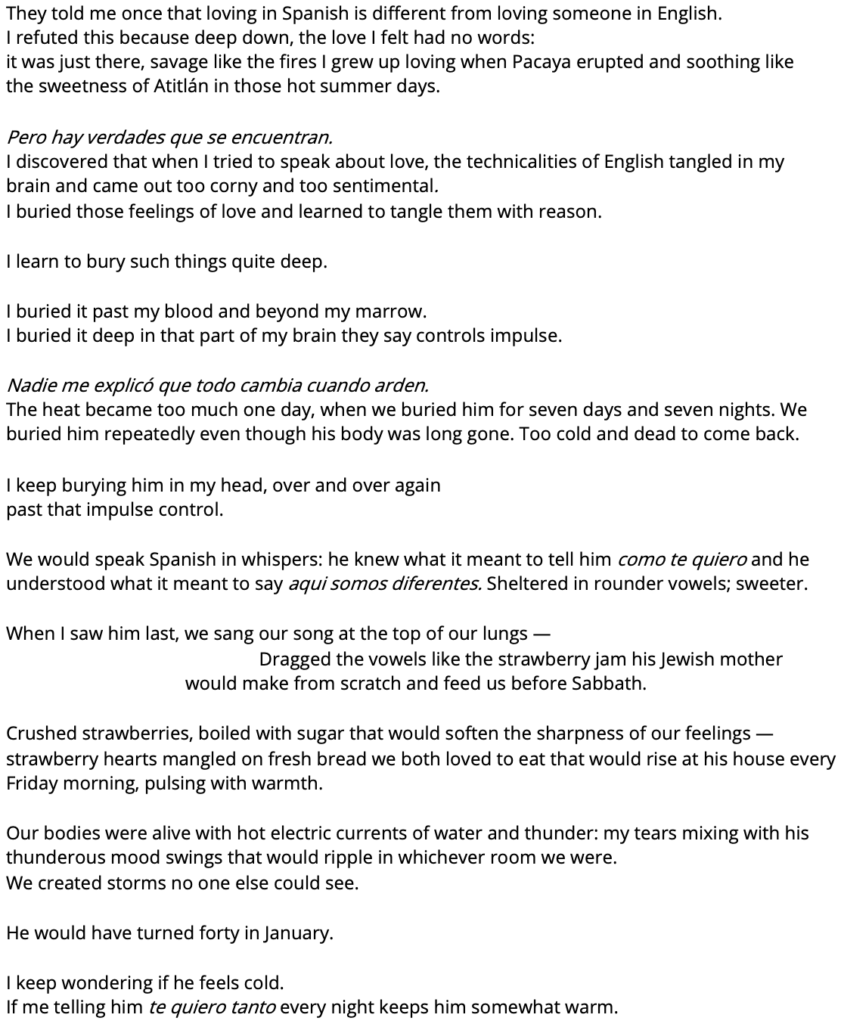By Olga Montenegro



Olga Montenegro is a native of Boston, MA who grew up in Mexico City. The daughter of two Guatemalan parents, Olga is currently a graduate student at Bridgewater State University and working on her thesis, which incorporates both English and Spanish to amplify the impact of language in memoir. Her work can be found in No Contact Magazine, Red Ogre Review, bravevoicesmag, MoonColaZine, and Jupiter Review. You can find her on Twitter @ActuallyOlga.
Editor’s Note
For those who don’t speak Spanish and/or are unfamiliar with some of the references in this poem, below are some annotations that provide additional context.
Translations:
Pero hay verdades que se encuentran. There are truths meant to be found.
Nadie me explicó que todo cambia cuando arden. No one explained to me that everything changes when things burn.
como te quiero. I really love you.
aqui somos diferentes. we’re different here.
te quiero tanto. I love you so much.
Other Annotations:
“Pacaya.” An active volcano in Guatemala.
“Atitlán.” A very large, very deep lake in Guatemala that sits in a large volcanic crater.
“for seven days and seven nights.” This refers to the act of sitting shiva, a Jewish mourning practice where visitors see the family and provide comfort; the practice traditionally lasts seven days.
Why we chose this piece: Olga’s use of Spanish and English is really lovely, and her voice resonated with us a lot. The idea of sitting shiva as a time to mentally bury and re-bury a loved one is so powerful. And saying “I love you so” over and over as a way to warm them up? Just beautiful. We truly admire how she explores grief in this poem.





